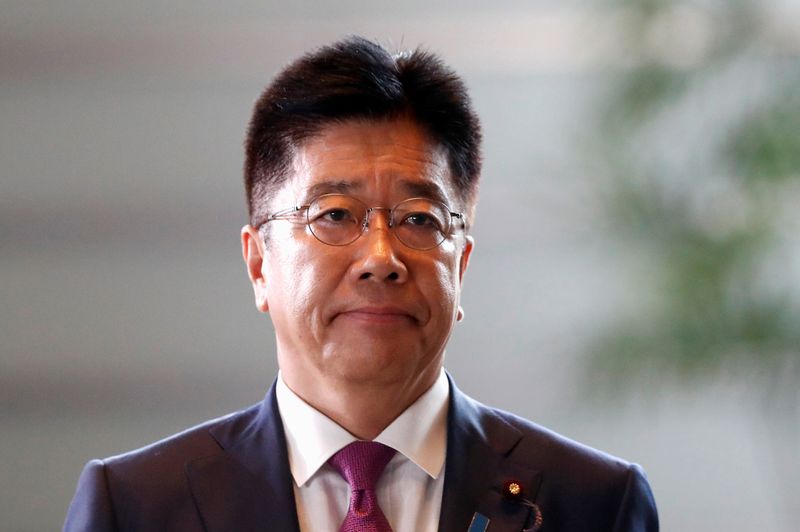TOKYO (Reuters) – Japan will consider increasing financial incentives for environmental, social and governance (ESG) investment, top government spokesman Katsunobu Kato said on Friday.
The support would come as Japan aims to cut greenhouse gases to zero by 2050 and become a carbon-neutral society, a policy goal announced by Prime Minister Yoshihide Suga last month.
Expanding support for environment-friendly investments, including carbon-neutral ones, through subsidies or changes to the tax system was among issues discussed on Friday at a meeting of the Growth Strategy Council, a government panel, including some private-sector members, headed by Kato, Japan’s Chief Cabinet Secretary.
“Given the expansion of ESG investment globally, measures to cope with global warming are no longer costs for businesses but sources of their competitiveness,” Economy Minister Yasutoshi Nishimura told reporters after a panel meeting.
“We’ll mobilise all policy steps, such as regulatory reform, to direct corporate funds towards green investment and consider financial and tax measures to support their ESG and carbon-neutral investments,” he added.
Other items discussed were energy innovation, such as in green and hydrogen energy, as well as introducing renewable energy as much as possible while also promoting nuclear energy, a meeting document showed.
The government’s ambitious carbon-neutral target raised a concern among some critics and opposition parties that resource-poor Japan may be leaning to nuclear power, despite the 2011 Fukushima disaster triggered by a massive earthquake and tsunami.
The government wants to draw up plans by year-end for achieving its goal of becoming a carbon-neutral society, Industry Minister Hiroshi Kajiyama said last month.
(Reporting by Daniel Leussink and Tetsushi Kajimoto; Editing by Kirsten Donovan and Alex Richardson)






















